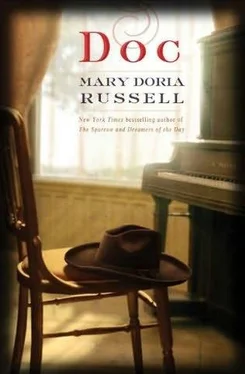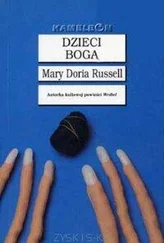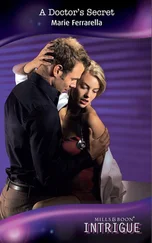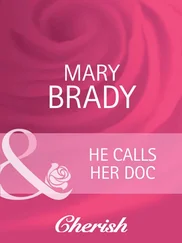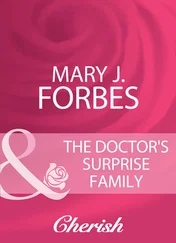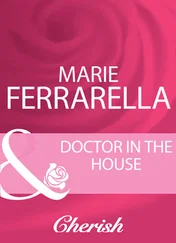Lou came around to the move after she got a letter from her father making it plain that the family was still against her marrying a Methodist. Mattie Blaylock didn’t seem to care one way or the other. Asked about going to Prescott or Tombstone, she shrugged and said, “Whatever Wyatt decides.”
“I wish she’d say what she wants,” Wyatt told Morg once, but Mattie wasn’t that sort.
Over at the Lone Star, a cheer went up at midnight, and everybody yelled, “Merry Christmas!” Morgan and Alex von Angensperg had talked that afternoon about meeting up at Bat’s party, but now Morg figured they could walk over together when the service let out, so he drifted toward the Union Church to listen to the Catholics singing.
The songs were real pretty, even if you couldn’t understand a word of what anybody said, and he could still keep an eye on Front Street while sitting on the church steps. When the doors opened, Morg got to his feet, and tipped his hat to the ladies and said “Evening” to the men, and went inside to wait while Alex took off the fancy robes he wore when he was working.
The priest had a regular suit on underneath. That surprised Morg, and he was going to ask about it when Wil Eberhardt and one of the Riney boys ran into the church, yelling, “Mr. Earp! Your brother says come quick! It’s Doc Holliday!”
“What’s wrong?” Morg asked. “Is he sick again?”
“Morgan, go!” Alex cried. “I’ll come as soon as I can!”
The kids took off running. Morgan followed. The Famous Cowboy Band had stopped playing, and Morg pushed through the doors of the Lone Star, asking, “What’s the trouble?” because everybody was standing up, like they were watching a fight or something.
Kate turned and shushed him. That was when he heard the piano.
Alexander von Angensperg was right behind him. Sounding thunder-struck, he said, “ Mein Gott … It’s the Emperor! ”
Which made no sense to Morgan, but Kate looked stunned.
“Are you sure?” she asked Alex, and when he nodded, her hands went to her lips. “But that’s—That’s what Doc used to play for his mother …”
Doc? Morg thought. Except it couldn’t be only him, because there were two people playing, it sounded like. He eased around until he could see better, and damn if it wasn’t just Doc, all alone at the piano, his back to the crowd, and he was playing something … something so … wonderful that Morgan didn’t even notice when Wyatt came over to stand beside him.
“Did you know he could play like that?” his brother asked.
“Hell, Wyatt,” Morg murmured. “I didn’t know anybody could play like that.”
For he had never heard anything like it—did not know such music existed in the world—and it was hard to believe that a man he knew could play it with his own two hands. There were parts of it like birdsong, and parts like rolling thunder and hard rain, and parts that glittered like fresh snow when the sun comes out and it’s so cold the air takes your breath away. And parts were like a dust devil spinning past, or a cyclone on the horizon, and all of it cried out for words that he had only read in books and had never said aloud.
Glorious. Majestic. Sublime .
Everyone else—even those who’d had too much of Bat’s liquor—must have felt the same, for they had all fallen silent: all of them watching Doc Holliday sway and bend and reach, as his hands flew and darted and skimmed across the keys.
When it seemed that the music had come to its end, everyone began to clap, but Alexander von Angensperg held up his hand. In a quiet, urgent voice, he told them, “Wait!” And sure enough, the music went on, but it was softer now, and simpler.
Morgan felt Lou’s hand steal into his own. “Look!” she whispered.
He followed her gaze and saw Kate’s face crumple, and Morg felt like crying himself, especially when Alex drew Kate toward his chest and held her like a weeping child.
Eyes closed, the priest began to sing to her, wordlessly crooning the melody that Doc played. Slowly, slowly, the notes began to rise and come together, until … they turned into the saddest, prettiest thing Morgan Earp had ever heard.
When the music could not have been lovelier or more moving, it changed again: first, like it wasn’t sure what would come next, and then like it had made up its mind, by God, and turned itself into a sort of thrilling waltz.
Alex said something in German.
Kate wiped her face, and answered him in kind.
With his hand held high and her palm upon his wrist, a shabby Jesuit missionary led a hardened cow-town harlot to the center of a tawdry dance hall in Dodge City, Kansas. Standing taller and straighter, the priest took on the martial bearing of the cavalry officer he would have been, had the voice of the Holy Spirit not seemed so strong and so insistent. Dropping into a deep and graceful curtsy, the whore lifted her arms to him, like the imperial lady-in-waiting that she might have become, had Maximiliano Primero not been overthrown. There, before a thousand eyes, the two of them began to dance, first alone, then joined by Lou and Morgan, and then by another couple, and another, and another, until the Lone Star Dance Hall had become a grand Viennese ballroom filled with whirling dancers and swirling, sparkling music.
Ghost lives, Wyatt thought, and Mattie must have been moved as well, for she was weeping, so Wyatt took her hand.
“Mattie,” he said, “would you like to dance?”
“ Yes ,” she said, and then she broke his heart. “Yes, but I don’t know how!”
So he held her instead, and they stood together, letting themselves be lifted away, carried outside themselves toward a time and place beyond their imagining as the music raced and tumbled and sailed out through the darkness toward the Kansas prairie, demanding more and more of the man who played it—
Going cold, Wyatt thought, He can’t keep this up. He’ll start to cough. His lungs will bleed again.
But it was Wyatt himself who could not breathe, gripped by a fear so strong, it seemed to stop the beating of his heart. Fear that this dance would end too soon. Fear that this music would be wrenched away from Doc—from all of them—before it was meant to end.
And though none of Wyatt’s prayers had ever once been answered, and though he knew that his soul was not pure and his faith was not strong, and though he could not understand why God always took the best and the sweetest to his bosom and left the dregs to get meaner and worse—in spite of it all, he began to pray. Dear Lord, please, give him time! Please, Lord, let him finish!
But John Henry Holliday was praying too, just as earnestly and to any god who might listen. Now. Now. Now. Take me now .
Now: with this music beneath his hands. Now: while he was still a gentle man who might have made his mother proud. Now: while beauty could still beat back the blind and brutal disease that was eating him alive.
So he held nothing back, tempting the Fates, defying them, seducing them.
Now: as he bent into thunderous, muscular chords.
Now: as he drew back for brilliant, chiming fantasies.
Now: as he hurled his hands into the impossibly swift runs across the keyboard.
Now, now, now , he prayed when the music darkened and fell, and spun and caught itself, and rose again, until at last—Orpheus to his own soul—he climbed beyond Hades’ grasp, beyond himself, beyond the terrifying, suffocating horror that awaited him, until exhaustion and peace had claimed him, as the music floated—softly, lightly—downward, and he let it end on the quiet chords before the final arpeggio.
Breathless and blinking like a newborn, he came back to the world around him, awakening first to rapt silence as the last notes died away, and then to applause and cheers and amazement.
Читать дальше
